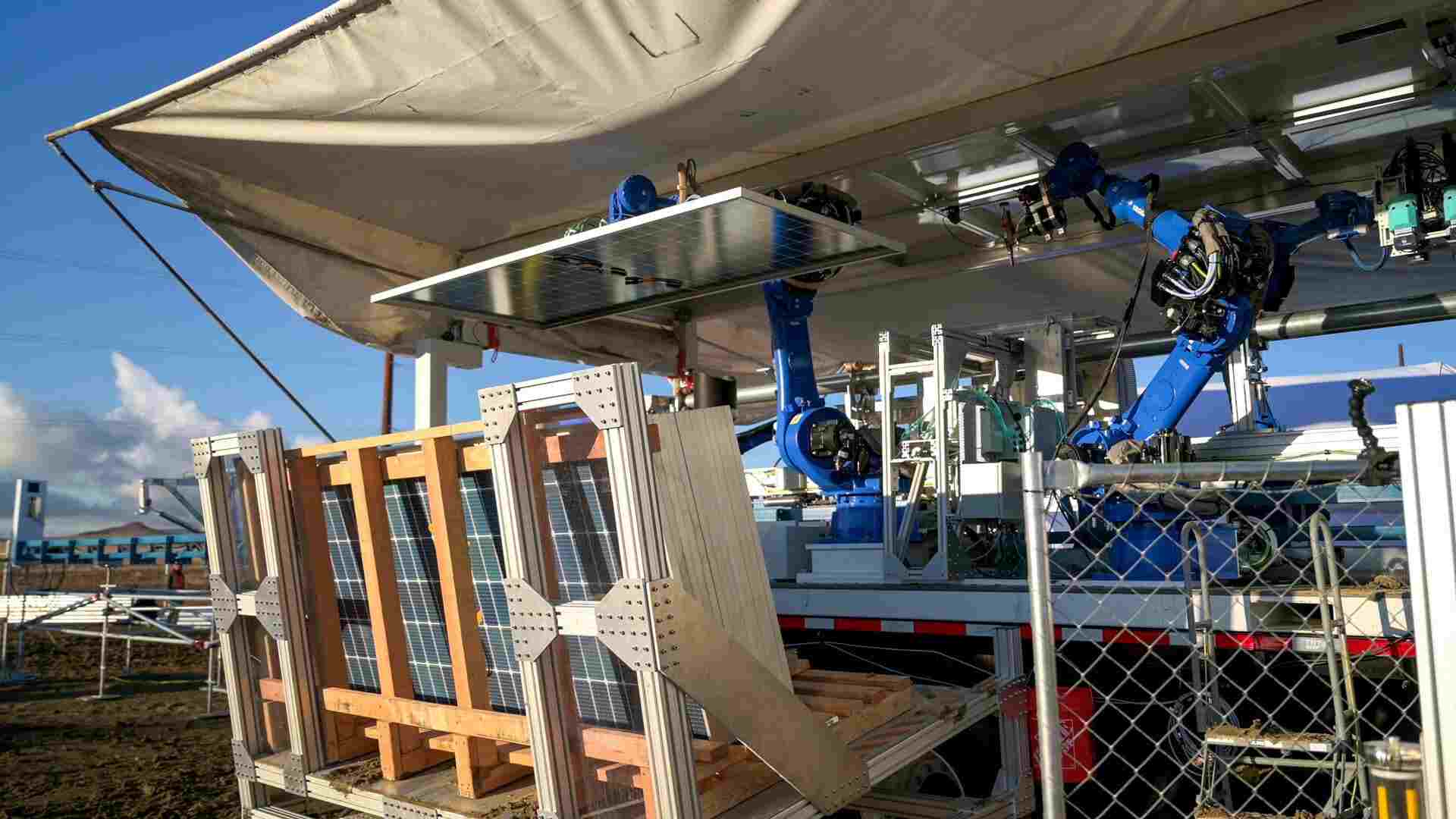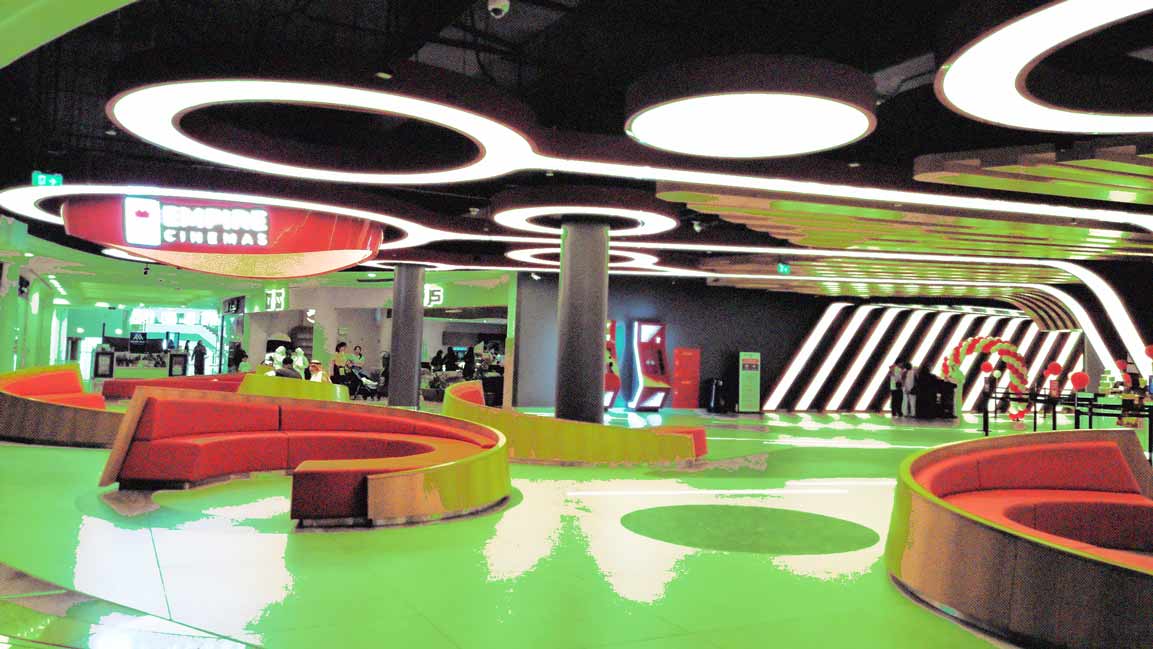- | 11:00 am
What are the latest culinary trends in the Middle East? We asked these top restauranteurs
Hospitality professionals weigh in on sustainability and plant-based food to artisan home cooking and immersive dining

From Beirut food walks with cheese pulls of kunafa to ambrosial food delicacies of Emirati cuisine, the Middle East countries have a lot to offer. With many food crossovers coming to the region due to diverse cuisines and over 40% of expatriates making up the region’s population, the dining and hospitality industry is thriving.
With so much happening, the F&B players are always searching for new combinations and trends. And who better than restaurateurs to take you on a stroll around the best and most sustainable food destinations?
We spoke to a few restaurateurs about their favorite places to eat and major food trends in the region.

Neha Anand, Partner, Kings Group Ventures, LLC
F&B trends: Third-culture food, embracing non-alcoholic beverages, and vegan food options are the biggest trends in the region. When Chef Kelvin Cheung pitched North American Asian as the concept for Jun’s—a modern dining place in Downtown Dubai—everyone responded with a blank stare. During the menu development process, I walked down the streets of New York City, and it clicked that North American Asian is a distinct cuisine. The food incorporates easier-to-source ingredients and doesn’t limit itself to tradition as it explores different combinations.
The idea of sustainability: Across all of our F&B brands, we try our best to source locally whenever possible. This is becoming more attainable in the UAE with vertical and hydroponic farms. Sustainability requires us to adapt.
Favorite hangouts: Jun’s, Kinoya, and Amritsr
One cuisine that remains unexplored and underappreciated: South Indian. It has got more to offer than just idlis and dosas.

Samer S. Hamadeh, Founder, Big Mouth Concepts
F&B trends: Acquisitions and a race to portfolio growth are currently trending in the space. Two to three groups have dominated retail and benefitted from developers. I see new “super groups” forming now.
The idea of sustainability: Most restaurants are not and will not address sustainability unless there’s a PR angle. Sustainability is more than a buzzword but, realistically speaking, most operators don’t have a plan unless they’re in the game for the next decade.
Favorite hangouts: Anywhere at Arts Club because of the vibe, quality of food, and incredible service. Zuma is my second favorite—it is the only place I miss when I’m out of Dubai. The third would be Pickl; they make the best hot chicken sando in the country.
One cuisine that remains unexplored and underappreciated: New American.

Maxime Legeard, General Manager, Hutong
F&B trends: A significant trend in the Middle East is consumers’ greater emphasis on sustainability and provenance when choosing where to dine. This has been a key topic within the hospitality industry for some time, but since the pandemic, consumers have been more attentive, with 35% selecting brands based on their sustainability credentials. People are also seeking experiences when dining—as consumer trends shift towards more immersive dining experiences, providing great food doesn’t suffice by itself.
The idea of sustainability: The industry has seen several initiatives in recent years. Restaurants serving takeaway or delivery food have completely redesigned their packaging by reducing plastic consumption. Utilizing compostable packaging and utensils has decreased waste production. In the past, the objective of waste reduction was to be profitable to businesses. However, recently, the focus has shifted to the positive effects this has on the environment.
Favorite hangouts: First on the list is Boca. It offers a casual atmosphere with warm and welcoming interiors. The diverse menu offers cuisines from around the Mediterranean coastal regions of Spain, Italy, and France. The second is Tomo, which allows guests to enjoy the best authentic Japanese cuisine. The breathtaking skyline view and excellent service, without the overcrowded feeling of the most famous spots, make the perfect romantic evening. Also, Hutong has exceptional cuisine, impeccable service, and the right music—my favorite place to work and play.
One cuisine that remains unexplored and underappreciated: I remember around ten years ago, my eldest brother took me to try a Senegalese restaurant in Paris. Entering the restaurant was like traveling the streets of Dakar with the aroma of ingredients such as garlic, peanuts, and roasted lamb. The technique of marinating chicken thighs with caramelized onions, green olive, grilled lemon, and turmeric was truly exceptional. Any cuisine that can go back to the basic ingredients with bold flavors and simple preparation with slight tweaks is memorable. Less is more.

Omar Basiony, Head of Culinary, LDC Kitchen + Coffee
F&B trends: Many F&B trends are occurring now. A focus on sustainability is the primary of them all. The perfect example is using local produce, which is more sustainable for the environment and tends to reduce freight and carbon footprint generated from importing goods.
The idea of sustainability: In 2022, many venues are working towards becoming more sustainable. The easiest and most important tactic is to reduce and prevent waste and improve food scrap management.
Favorite hangouts: I’m a big fan of Asian food, so most of my favorite dishes are from that region. Noodle Bowl, located in Satwa, tops my list. It reminds me of the OG Chinatown restaurants back home. They have delicious food at very reasonable prices and a comfortable atmosphere where you are always greeted with big smiles. Maru Udon would be next on my list as they make their noodles from scratch. Even their simplest noodle bowl is super tasty. During winter, my go-to place is the Time Market at the Thai Consulate. It’s a great place not just to learn more about Thai culture but also lovely for a social gathering with people from all around the world.
One cuisine that remains unexplored and underappreciated: Ethiopian food. There are a few restaurants in the UAE providing Ethiopian cuisine, though not many people know about or even try it, despite its distinctive and delicious palette. Its cuisine stands out from the rest of Africa with its mouth-watering platters such as tibs, kitfo, and tere siga.

Nicolas Budzynski, Global Operations Director, LPM Restaurant & Bar
F&B trends: With the arrival of major international awards/guides such as Worlds 50 Best, Michelin, Gault & Millau, amongst others, there is a clear trend that the Middle East wants to focus on better food and beverage. This is elevating the region, and Dubai, to become one of the best destinations in the world for dining. On the other hand, larger lifestyle restaurant and lounge concepts continue to grow with a clear emphasis on entertainment and beachfront locations. Nightclubs have taken a significant hit during the pandemic, and people are now looking for a single spot to dine at. Many industry experts are now discovering that quality food is not the only element that entices guests.
The idea of sustainability: Our Jean Cocteau global beverage menu is made from recycled pineapple leaves. The menu is also made with low-waste ingredients.
Favorite hangouts: Besides LPM and Zuma, I would choose the Arts Club due to its great location and qualitative environment, dining, and entertainment. Or I’d make a reservation at Gaia. If I am not in any of these venues, I’d probably go to one of Rika’s Group concepts (La Cantine, Ninive, Mimi Kakushi, Twiggy), as they still focus on a qualitative experience with a touch of fun.
One cuisine that remains unexplored and underappreciated: There is ample opportunity for contemporary Arabic (Middle Eastern, Levant, and North African) cuisine. I am still disappointed that Qbara never reopened as, except for Ninive, there are not many options for high-end Arabic concepts in the UAE. Furthermore, Indian cuisine has always intrigued me. After seeing the success of Tresind (and Studio by Tresind), there is also a big opportunity here. Cuisines and cultures could develop amazing concepts, helping guests explore new things.

Jad Aboujaoude, Managing Partner, Salmon Guru, Elements Hospitality
F&B trends: The biggest trends are shifting to healthier food, artisan home cooking, and plant-based food. This change has increased awareness of more nutritious and plant-based food as diners notice improved health. Another impressive trend is the rise of non-alcoholic bars.
The idea of sustainability: There are many ways for restaurants to improve sustainability. For instance, cutting down on printed receipts and the packaging from their suppliers, printing menus on recycled paper, replacing paper napkins with linen ones, using biodegradable bin bags for unavoidable waste, and cutting down on energy usage. Unfortunately, most livestock farming and fishing practices have become highly unsustainable and are damaging the environment. This has urged some F&B concepts to go the extra mile, adding more vegetarian and vegan options to their menus, helping reduce gas emissions, ocean pollution, and water contamination.
Favorite hangouts: Fils is one of the best Asian restaurants with a Japanese twist—every dish has a particular flavor. Orfali Bros Bistro, another unique creation, combines taste, texture, and top ingredients. Each recipe has a twist reminding me of my grandma’s touch. The Shish Barak a la Sgyoza is out of this world. When it comes to Lebanese food, I am sure Al Safadi is the best. The variety and quality are always up to the expectation.
One cuisine that remains unexplored and underappreciated: Armenian cuisine. It is the most ancient in the Caucasus region. The traditional crops grown along with the herbs and spices enhance the flavors and take you on a unique journey. The cuisine reflects the history of Armenians and how they lived. Armenians have shared influences from European and Levantine cuisines.

Ali Yazdi, Head Chef and Entrepreneur, SLAW
F&B trends: As the F&B industry continues to expand rapidly in the UAE, so do trends surrounding and defining the industry. The three biggest trends in the industry are sustainability, plant-based foods, and the fusion of different cuisines.
The idea of sustainability: Sustainability has started to become a crucial factor in venues across the world. A few years ago, restaurants were only known and recognized for their food offerings. Most are doing their best to reduce waste and minimize environmental impact. By limiting the use of plastics, reducing packaging, reducing food wastage, and using more locally sourced ingredients, restaurants are becoming more sustainable.
Favorite hangouts: My all-time favorite place to eat is my second home, Slaw. I love to eat at Fogo De Chao—they use almost everything fresh, locally sourced, and family oriented. The other is Netsu, home to the highest quality sushi and Japanese steak. Emperor Cafe is like home, a tiny restaurant in Old Dubai that offers everything from locally sourced lamb to fish, chicken, and veggies.
One cuisine that remains unexplored and underappreciated: Rice pudding.

Stefano Mihalitsianos, Managing Director, UAE – Tashas Group
F&B trends: Classic dining experiences are making a significant impact, and people realize it. While there is a strong movement towards small, focused venues with great atmospheres and innovative menus, the gimmick-filled experiences are declining. Good, live entertainment is certainly becoming more prominent. Cuisine trends are embracing Asian elements, as well as plant-based produce.
The idea of sustainability: Picking the right supply sources and ethical shopping is gaining as much importance as minimizing single-use plastics.
Favorite hangouts: LPM is classic, timeless, and consistently excellent. The sushi at Fils is just superb, their burger is just as good, and the environment is fun and unpretentious. When looking for a great Greek meal in a relaxed setting, Taverna never disappoints.
One cuisine which remains unexplored and underappreciated: South African.

Firas Fawaz, Founder and Managing Partner, The Artisan
F&B trends: The increasing number of expats and tourists has helped strengthen the hospitality industry, giving restaurants the right exposure to various clientele. The trend is shifting towards quality and experience-driven concepts rather than focusing on volume. Guests are looking for genuine and tailor-made service.
The idea of sustainability: Sustainability should be addressed on multiple levels, from producers and supply chains to end consumers. There’s a lot that needs to be done in terms of wastage.
Favorite hangouts: Zuma, Em Sherif, Fils.
One cuisine that remains unexplored and underappreciated: Mexican and Spanish cuisine is still underrated and associated with a few items that are mainly part of the street food culture.

Hersh Suri, Founder, Roobaru
F&B trends: There is growing gravitation toward sharing-style menus. With restaurants having smaller portions of such dishes, it allows us to prioritize the quality of ingredients. Affordable pricing enables the consumer to taste a more extensive range of dishes. It is a win-win scenario. We are slowly moving towards a communal dining outlook.
The idea of sustainability: Restaurants often overlook sustainability, whether in using single-use plastics or an overall lack of awareness regarding where our proteins are sourced from or the sustainability of farming methods. There is a growing trend to source locally and understand where your ingredients come from, which is the first step to moving to a sustainable business model. The growing legislation aids this, and the government’s recent initiative to tax single-use plastic bags is a welcome change.
Favorite hangouts: The first is Fils. They were the pioneers in Dubai. The idea to provide such product quality at such affordable prices truly is one of a kind. The other one would be Orfali Bros Bistro. It is just a craft of the highest order. Sometimes, you can feel the skill and precision that goes into each dish. Tresind Studio is the best fine dining Indian experience. Pickl is also on my list.
One cuisine that remains unexplored and underappreciated: Indian food. India is a subcontinent for a reason. The variation in regional territories extends to flavors, cooking techniques, and ingredients. We have not scratched the surface of Indian food in the Middle East.

Amal Al Marri, Creative Director
F&B Trends: A growing trend in Dubai is chef-driven concepts, more home-grown, and exclusive F&B experiences. Increasing attention is being paid to local produce, reducing carbon emissions, and reducing environmental impact, making small and independent businesses more popular than ever. Also, there was a huge demand for convenience and doorstep delivery even before the pandemic. Several cloud kitchens are emerging in the market to cater to this demand.
The idea of sustainability: Wasted food wastes labor, effort, investment, and precious resources that go into making it. Reducing food loss and waste is vital. The least we can do is choose the right portion for your plate.
Favorite hangouts: Salt
One cuisine that remains unexplored and underappreciated: The majority of cuisines have been explored, but we think what hasn’t been explored is more experiential dining. There should be more pop-ups and more collaboration in the food scene. We have created narrative-driven visitor journeys through our Salt camps. We will introduce more of these activities soon.






































